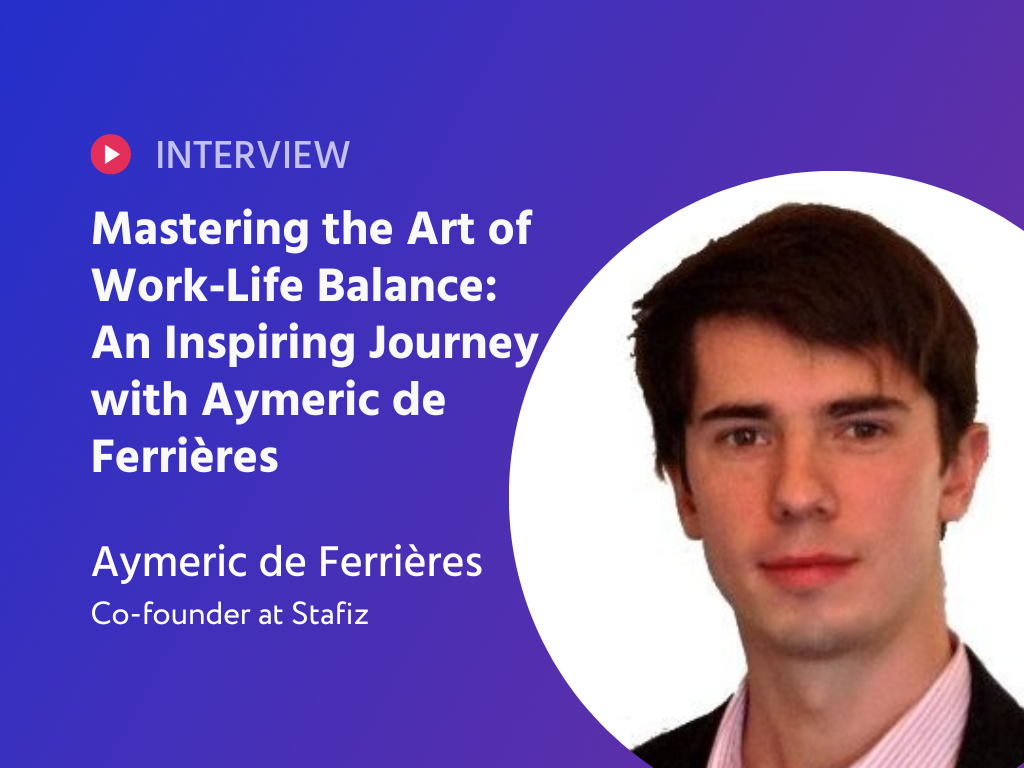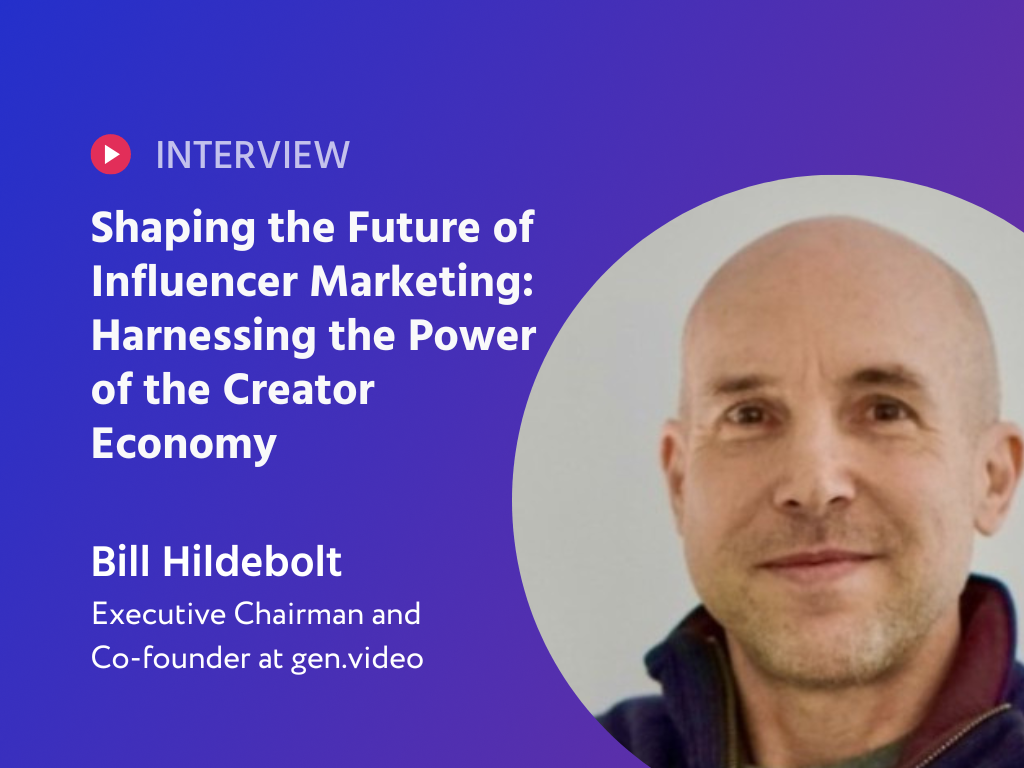In this edition of Bright Founders Talk, we sit down with Laurent Hausermann, the Co-Founder and CEO of CyGO Entrepreneurs, a trailblazing cybersecurity venture studio. With over 25 years of experience in the field, Laurent has built and sold multiple cybersecurity companies to industry giants like Airbus and Cisco.
His impressive journey from product engineer to serial entrepreneur offers a wealth of insights into innovation, leadership, and resilience. At the heart of our conversation is CyGO’s unique model—a venture studio that not only funds startups but also co-founds them and provides hands-on operational support.
Laurent shares what inspired him to take the entrepreneurial leap and how personal turning points shaped his mission. We delve into what sets a true venture studio apart from incubators or accelerators and why CyGO's approach is redefining early-stage cybersecurity innovation. For aspiring entrepreneurs and tech enthusiasts alike, this interview is a masterclass in building sustainable, high-impact ventures. Join us as we uncover Laurent’s vision for the future of cybersecurity startups—and the passion driving it all.
Freedom, Failure, and Founding: How Laurent Hausermann Built the Studio Model for Cybersecurity Startups
Laurent Hausermann isn’t your typical tech founder chasing the next shiny product. He’s spent over two decades building—and exiting—cybersecurity companies, but it’s not just the successes that define him. What stands out is his drive to be his own boss, to build on his terms, and to help others do the same. “I wouldn’t say I had a problem with authority,” he laughs, “but I’ve always preferred following my own thread.” That thread led him from engineering teams to founding two companies acquired by giants like Cisco and Airbus. But instead of taking a backseat after those wins, Laurent doubled down—he wanted to empower others to launch, too.
Enter CyGO Entrepreneurs, a venture studio that’s rewriting the startup playbook in the cybersecurity space. Most people confuse a venture studio with a VC or an accelerator, but Laurent clears it up with confidence: “A real studio is part founder, part team, and part investor—at the very beginning.” What makes CyGO unique is that they jump in before a startup even exists. They help shape the idea, build the team, write the first check, and handle everything from engineering to marketing. It’s like having a co-pilot from day one—only this co-pilot knows how to land million-dollar exits.
A real studio is part founder, part team, and part investor—at the very beginning
The spark to start CyGO came during a turning point in Laurent’s life—one marked by personal loss and big questions. “It was a moment of ‘what do you really want to do with your life?’” he recalls. That question led to a new mission: to build not just companies, but company builders. And in a world where going solo is often glamorized, Laurent offers a refreshing take—build together, fail faster, and get support when it counts. With CyGO, he’s not just launching products; he’s launching founders, and redefining what it means to start strong.
Cyber Doesn’t Scale from the Garage: Why Laurent Says Cybersecurity Startups Need to Go Global Fast
Ask Laurent what makes the venture studio model so effective for cybersecurity, and he won’t talk in vague buzzwords. Instead, he’ll walk you through the real-life challenges that founders face—like being too deep in code while completely missing what the market actually needs. “You can have a wonderful technology, and no one cares,” he says. That’s a hard truth for many tech-minded founders who fall in love with their solution before validating the problem. At CyGO, his team flips that mindset. Forget stealth mode—get out there, talk to customers, test your assumptions, and stop building in isolation. The first three months aren’t about perfecting a product—they’re about proving a use case with real-world demand.
You can have a wonderful technology, and no one cares
But it’s not just about understanding your audience. It’s about expanding your stage. One of the biggest pitfalls Laurent sees in European cybersecurity startups is their tendency to stay small and local for far too long. “You need to be global from day one,” he emphasizes. Unlike Israeli startups that quickly leap into international markets, many European founders treat global expansion like a reward rather than a necessity. And by the time they finally look beyond borders, the competition—usually American or Israeli—is already entrenched. According to Laurent, this delay isn't a result of policy or infrastructure—it’s a mindset issue. One that CyGO is actively trying to shift.
So what’s holding European founders back? Not language, not regulations, not even market complexity. It’s the lack of role models and a bold enough narrative around what's possible. “We don’t need to wait for anyone to open doors,” Laurent says. “It’s up to us.” He believes European entrepreneurs need to think big from the start—to stop aiming for regional wins and start building continental champions. His advice? If you're a founder in Slovakia or Spain, your second customer should be in France or Germany, not just the next city over. It's this cross-border ambition, baked into CyGO’s DNA, that could set the stage for Europe’s next wave of cybersecurity giants.
From Sovereignty to Spam Filters: Laurent’s Vision for a Safer, Smarter, AI-Powered Europe
When asked about Europe’s digital resilience, Laurent doesn’t shy away from the big picture. He sees the imbalance between U.S. and European digital services as not just an economic gap—but a strategic vulnerability. And while he’s not claiming CyGO will solve all of Europe’s tech challenges, he’s clear about the role it can play: building the connective tissue for cybersecurity startups to go global fast. “We’re creating a pre-established go-to-market network,” he explains. Instead of founders scrambling for contacts in each country, CyGO is laying the groundwork—through its community of MSSPs (Managed Security Service Providers)—so startups can scale confidently across borders from day one. In a fragmented continent like Europe, that’s not just helpful—it’s game-changing.
But Laurent isn’t just thinking about market strategy—he’s got his eye on the future of cybersecurity itself. Through his newsletter Cyberbullies, he’s been tracking how AI is quietly revolutionizing the way teams operate. The most promising shift? AI’s power to scale security operations without needing to hire an army. “There’s more to be done than security teams have time for,” he says. AI won’t replace the human brain behind the console, but it will handle the repetitive, exhausting grunt work—triaging alerts, finding vulnerabilities, checking code integrity. Just like how no one checks their spam folder anymore, he believes AI will soon make other complex security tasks feel equally seamless.
There’s more to be done than security teams have time for
Still, Laurent warns against both blind hype and narrow thinking. Too many companies equate AI with chatbots or flashy dashboards, missing the deeper opportunities in UX and systems design. He points to innovative platforms like Germany’s n8n, which are reimagining how we integrate AI into everyday workflows—not just conversations. His take? We’re only scratching the surface. “We haven’t seen yet all the improvement in terms of UX AI could deliver,” he notes. As tools evolve and interactions become more intuitive, businesses will finally unlock the real power of AI—not just for cybersecurity, but for digital operations across the board. And if Laurent’s vision plays out, Europe might just find its competitive edge through better design, not just better algorithms.
No Plan B: Laurent’s Bold Take on AI Fears, Startup Culture, and the Future of Cyber
If there’s one thing Laurent Hausermann doesn’t have time for, it’s hand-wringing over AI paranoia. While some enterprises still hesitate, worried AI is just another backdoor to leak their sensitive data, Laurent has a more grounded take. “In a few years, AI will run at the edge—on your laptop, even your phone,” he says. That shift to small language models could be the game-changer Europe needs: powerful AI with privacy baked in. For a continent obsessed (rightfully so) with data protection and GDPR, the idea of running secure, local models could eliminate a major psychological barrier. In Laurent’s view, it’s not about the size of your model—it’s about where it lives, and who controls it.
In a few years, AI will run at the edge—on your laptop, even your phone
Beyond AI, Laurent sees an even deeper challenge: big companies playing it too safe. For startups, especially in cybersecurity, the biggest enemy isn’t competition—it’s hesitation. Enterprise buyers love to talk to startups, he explains, but when it comes time to commit serious money? Crickets. “We need customers willing to adopt immature solutions early,” Laurent says. Without those early champions, sales cycles drag, cash dries up, and startups get stuck begging VCs for lifelines. He imagines a new playbook—where European enterprises step up, fund the next wave of cyber leaders, and form deep, advisory partnerships instead of stiff procurement walls. It’s ambitious, yes. But it’s the kind of shake-up the ecosystem needs.
And what about the next generation of entrepreneurs? Laurent’s advice is sharp and unsentimental: have no plan B. “If you’re still debating between starting a company and taking a job offer, you’re not ready,” he says. At CyGO, he and his team only work with founders who are all-in—because building a company is brutally hard, and you can’t afford to look over your shoulder. And don’t forget the personal side, he adds. The emotional toll, the late nights, the strain on your family—if that’s not something you’ve honestly reckoned with, maybe sit it out. But if you’ve burned the boats and are ready to go all in? Then you’ve got a shot—and CyGO might just be the best partner to have in your corner.




